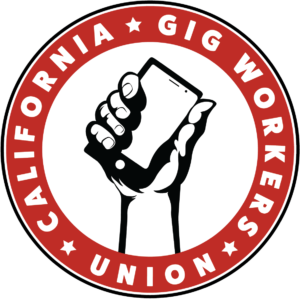The Senate’s Labor, Public Employment and Retirement Committee passed California’s groundbreaking gig-work bill, 4-1, at a hearing Wednesday. The contentious proposal, Assembly Bill 5, took center stage in Sacramento this week with hundreds of supporters and opponents rallying and testifying as the Senate committee weighed potentially turning hundreds of thousands of independent contractors in the state — such as Uber and Lyft drivers — into employees.
For Press
Media inquiries? Call Tim Sandoval at 213-218-5855.
A San Francisco Board of Supervisors committee heard on Friday about the plight of gig workers, who have fewer protections than typical employees, and efforts to protect them through proposed legislation in the state legislature. “Corporations relying on gig workers including Uber, Lyft and Instacart have achieved instant and rapid success in large part relying on a business model that dismantles more than a half-century of worker protections,” Public Safety and Neighborhood Services Chair Rafael Mandelman said at Friday’s hearing.
San Francisco officials are about to look in every nook and cranny of local law for ways to enforce worker protections for thousands of “gig workers,” following a state Supreme Court ruling known commonly as the “Dynamex” decision. That legal analysis is taking place even as the state legislature considers Assembly Bill 5, authored by Assemblymember Lorena Gonzalez (D-San Diego), which would cement the Dynamex decision in California law.
More information on driver training and other issues is needed before a decision can be made on how to change the rules around how Uber, Lyft and cab companies operate, a city committee decided Monday. After an afternoon of deputations that were critical of many of the proposed amendments, the city’s general government and licensing committee voted to ask city staff to come up with more details on how proposed training for drivers could work; the impact of ride-hailing services like Uber and Lyft on congestion; and what opportunities exist to ensure higher vehicle fuel-efficiency standards in the industry.
Faced with a looming threat to their way of doing business, Uber, Lyft and other major on-demand companies are trying something they’ve historically been reluctant to do: seeking compromise. Anxious to preserve the freelance work arrangements upon which they’ve built their vast workforces, these companies have been pushing for a grand bargain that will satisfy labor groups’ demands and stave off a California bill that could force them to treat workers in the state as employees — an outcome that would damage their hopes of long-term profitability.
Uber and Lyft drivers demonstrated in Los Angeles calling for employment rights and better pay. The rally took place outside Lyft’s hub in downtown Los Angeles. Among other things, ride-share drivers are demanding better working conditions and a $30-an-hour wage. Right now there’s a legislative proposal under consideration that addresses the issue. California assembly bill five would make it harder for companies like Lyft and Uber to classify drivers as independent contractors and not employees.
California is currently moving to enact a new state legislation (Assembly Bill 5) that would codify and expand a 2018 State Supreme Court ruling, which states that a worker is considered an employee unless they qualify for an exception. The proposed legislation would alter the employment classification of rideshare drivers, who don’t qualify for an exception. Under the law, companies would be required to designate most independent contractors as employees and provide them with benefits like unemployment, health insurance, and workers compensation.
Uber and Lyft drivers held a rally Tuesday outside of Uber’s San Francisco headquarters to support new state legislation that could convert drivers from gig workers to employees. Assembly Bill 5, introduced by Assemblywoman Lorena Gonzalez (D-San Diego), would require companies to designate most independent contractors, or gig workers, as employees and provide them with benefits like unemployment, health insurance and workers compensation.
Uber and Lyft drivers held a rally Tuesday outside of Uber’s San Francisco headquarters to support new state legislation that could convert drivers from gig workers to employees. Assembly Bill 5, introduced by Assemblywoman Lorena Gonzalez (D-San Diego), would require companies to designate most independent contractors, or gig workers, as employees and provide them with benefits like unemployment, health insurance and workers compensation.
A group of company drivers gathered at Uber’s headquarters in San Francisco on Tuesday, protesting against companies using improper means to oppose the AB5 bill protecting their work benefits. Omar has been a driver for Uber for six years, but Uber has reduced the rate of payment to drivers year after year, and now has to work longer, but earn less.
